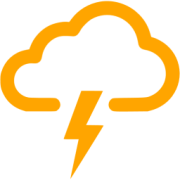Orange Weather Alert – Extremely Bad Weather affecting Transportation
We wish to advise you of an Orange Weather Notification that has been issued by Environment and Climate Change Canada for the Lower Mainland.
A pattern shift into snow/freezing rain/rain threats and warming has been issued for the province, including the Lower Mainland, by Environment and Climate Change Canada. The below forecast meets or exceeds the snow and wind criteria to issue an alert, within the Fraser Health region.
An Orange Weather Alert indicates that you should BE PREPARED as daily life, including transportation will LIKELY be disrupted.
Areas issued for:
- All regions within Fraser Health
Timeframe:
- Friday, December 23 – Sunday, December 25
Details:
- Active storm pattern will return from the Pacific starting early Friday, December 23, leading to more precipitation and warmer weather colliding with arctic air to create snow, freezing rain and rain
- Friday December 23
o Snow: 5-20cm expected in Coastal BC including Fraser Region
- Saturday, December 24
o Rain: 20-50mm expected
o Snow: 2-10 cm for Fraser Valley & higher elevations before transitioning to freezing rain/rain
o Moderate risk of freezing rain continues for inlets/valets during the transition to warmer temperatures
- Sunday, December 25
o Most of the Lower Mainland and Southwest coast should see complete transition to rain
Potential impacts for consideration
- Health concerns for vulnerable populations exposed to cold weather
- Very cold temperatures creates an elevated risk of frostbite and hypothermia
- Seniors who are prone to wandering may be exposed to dangerously cold temperatures
- There is an increased risk of disruption to services and transportation in the region
- Challenging driving conditions in snow due to accumulating snow, slippery roads and limited visibility (South Coast)
- Accumulating snow and freezing precipitation create slick roads and may make travel challenging
- Staff may have trouble accessing work sites
- Increasing avalanche danger as a series of storms progresses may cause delays to transport of patients and supplies
- Risk of water pooling, localized flooding, landslides due to melting of accumulated snow from warmer temperatures and rainfall
- Consider postponing non-essential travel until conditions improve
- Power outages are possible, caused by infrastructure damage from increasing weight on structures from icing/freezing rain/heavy wet snow
- All health care facilities may be directly impacted and should prepare for power failures
- There may be an increased demand on health care services
- There is a potential for higher number of visits in Emergency Departments
- There is a possibility for delays from BCEHS and 911 dispatchers
Potential actions to take
- Sign up for weather alerts through Alertable, WeatherCAN, and AlertMe
- Make sure on-call leadership is aware and knows how to report any impacts
- Be aware of winter hazard planning at your care community that supports the impacts of snow, extreme cold and power failures, such as system failure planning, and your site emergency coordination processes.
- Consider increasing wellness checks on residents who are at risk of exposure to cold, including those who are prone to wandering
- Give yourself more time to travel for work
- Be prepared to stay in temporary accommodations or host, as staff may be temporarily redeployed to a different site to support the response (for example, prepare an overnight bag)
Thank you for your continued commitment to the care and safety of your residents and your team members.





